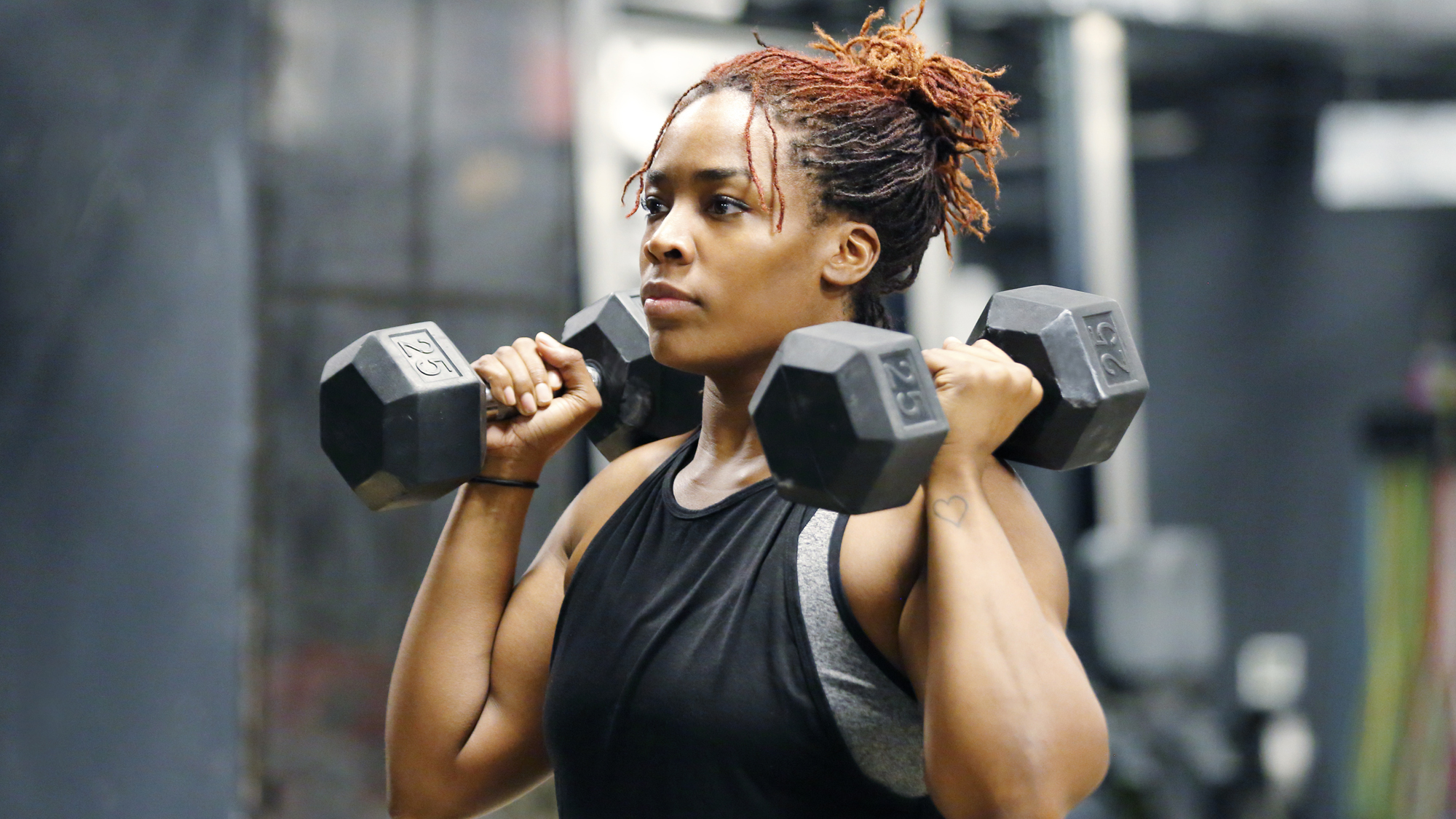You can build bigger muscles without extra carbs — Here's why
It's all about the energy you need to move your muscles when working out


Start your week with achievable workout ideas, health tips and wellbeing advice in your inbox.
You are now subscribed
Your newsletter sign-up was successful
When fueling your muscle-building workouts, protein plays a crucial role in post-exercise recovery and muscle growth. But to fuel your training, you need carbohydrates. Thanks to new research, we now know you don't need to eat extra carbs to get stronger.
Whether you're exercising at home with a set of the best adjustable dumbbells or resistance training at the gym, you need energy to get through the session. Our bodies turn carbs into sugar to feed our muscles, but it's not always clear how much you need.
According to a recent review published in the journal Nutrients, "39 out of 49 studies... found no significant benefits of carbohydrate manipulation on strength training performance."
Carb loading, where you eat a high volume of carb-heavy foods the day before the event, is a common technique for endurance sessions, like a marathon or triathlon. It's useful for specific activities but can set you back in the long run.
However, for strength training workouts, you need explosive movements rather than long-lasting energy. Despite this difference, it's still commonly recommended to increase your intake of carbs before and after resistance training.
The authors of the current study say that we don't need to carb load when resistance training as our bodies handle the movement differently. For endurance exercise, we need to convert food into fuel, which needs chemical processes.
When strength training, we primarily use mechanical movements to contract our muscles, which requires far less energy. The amount of rest you take also makes a difference, just as taking longer rests between sets can actually build muscle faster.
Start your week with achievable workout ideas, health tips and wellbeing advice in your inbox.

If you're running a marathon, you'll move for most of the race. But when lifting weights, you take frequent rests between sets. This allows us to burn fat in place of carb-derived sugars like glycogen, accounting for up to 70% of your workout's energy expenditure.
Cutting back on carbs has a similar fat-burning effect, but it can also make you tired as you have less fuel to get you through the day. That's why athletes might choose the carb-cycling Train Low Sleep Low strategy to burn fat instead.
If you're looking to build muscle, you might also be considering bulking vs cutting workout diets. Bulking, where you aim to eat as much as possible, helps increase your muscle mass but also your total body fat.
This is why people prefer modestly increasing the amount they eat but still retaining a balanced diet, mixing protein, carbs, and fats to get more sustainable results. This is known as lean bulking.
Although protein's muscle-building effects are well-known, it also helps you reduce fat, which is why the best protein powders for weight loss are an ideal companion to any strength training routine.

James is a London-based journalist and Fitness Editor at Fit&Well. He has over five years experience in fitness tech, including time spent as the Buyer’s Guide Editor and Staff Writer at technology publication MakeUseOf. In 2014 he was diagnosed with a chronic health condition, which spurred his interest in health, fitness, and lifestyle management.
In the years since, he has become a devoted meditator, experimented with workout styles and exercises, and used various gadgets to monitor his health. In recent times, James has been absorbed by the intersection between mental health, fitness, sustainability, and environmentalism. When not concerning himself with health and technology, James can be found excitedly checking out each week’s New Music Friday releases.